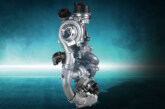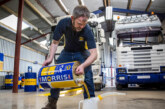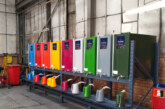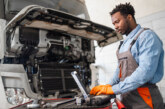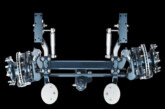Why is it important to service and replace filters?
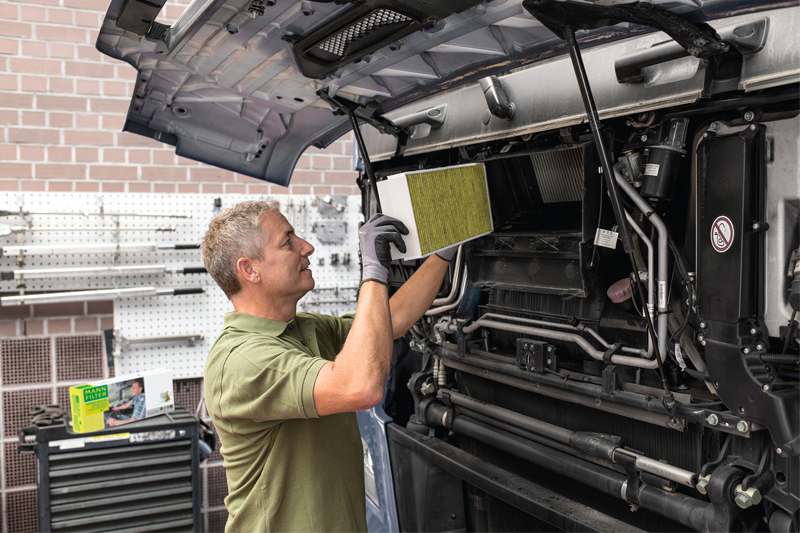
There’s no getting away from filters these days, as their use seems to increase in every facet of vehicle operation. Gary Winslow, product and marketing manager – aftermarket, Mann+Hummel, stresses the importance of servicing and replacement.
Without stating the obvious, servicing the filters on a commercial vehicle is critical to ensure both the reliability of a heavy- use application and to protect a very expensive investment– be this an owned or fleet vehicle, long distance haulage requirement or more localised short- haul drop and go usage.
Given the critical nature of being able to maximise the running time of the vehicle and reduced own time and any potentially expensive repair resulting from insufficient maintenance, the use of cheaper, non-Original Equipment specification filters is a false economy. To explain the benefits of using a reliable OE specific aftermarket brand such as MANN FILTER, consider the points below:
Air Filters –even with smaller light commercial vehicles, an engine air filter can have an intake flow of more than 2,500 litres of dirty air per minute (approx.40 litres a second!). Quality filter media (the ‘paper’ that retains the contaminant) must be used to ensure the service interval is reached, the air flow is optimised for the required engine airflow, and the sealing arrangement allows no bypass of unfiltered air/harmful particles.
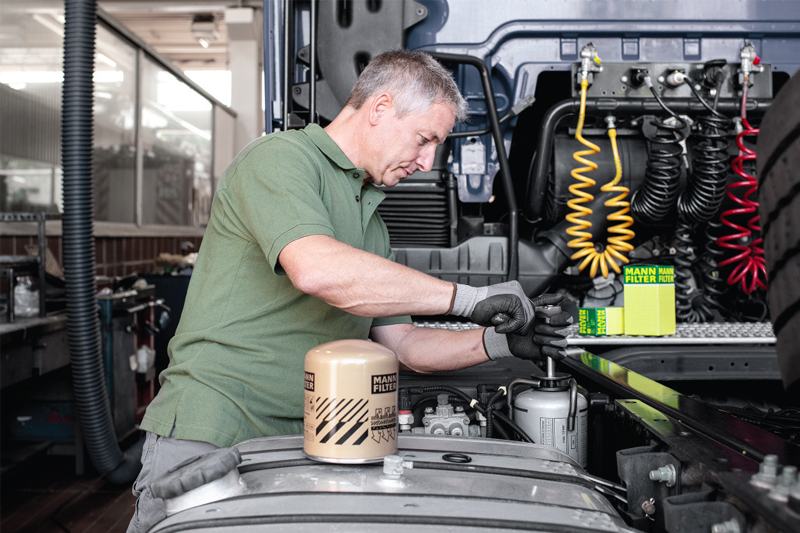
Oil filters –with the oil from the sump being circulated and filtered upwards of 240 times or more every hour, oil filters work incredibly hard. As well as being higher pressurerated than equivalent car filters, the dirt holding capacity must be sufficient to prevent premature blockage. From an example test, a lower quality CV oil filter retained 62.3g of containment and ‘failed’ at circa 38k miles– the equivalent MANN-FILTER retained 111g and exceeded the service interval.
Fuel filters –challenging emissions regulations for engine manufacturers need ever-finer filter media, but also need to ensure water filtration to protect sensitive engine components. Specific hydrophobic media must be used, sometimes incorporated as a pre-filter – check and change both when required to prevent corrosion and unwanted wear and tear.
Cabin filters – protection for the most important part of a commercial vehicle, the driver. Often misunderstood as just a ‘pollen filter’, cabin filters are an all-year component, filtering airborne particles (and pollen!), harmful gases and now allergens and bacteria. Cabin filter replacement is also important to prevent misted windows for visibility and good airflow to prevent cabin odours and drowsiness.
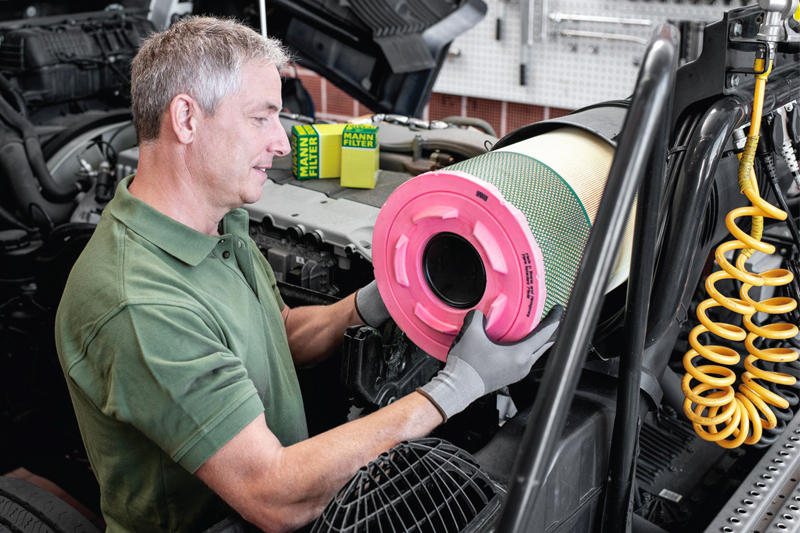
Air dryer filters – critical to the health of the compressed air braking system and a safety item. Cheaper options may not have the required amount of drying agent and hence be less effective, or not have a coalescence function to maximise the oil separation from the air.
Ancillary filters – a commercial vehicle has many more filters than the average car or van. Urea (AdBlue) filters, filters for the transmission, coolant, power-steering…the list goes on. Make sure all filters are changed at the recommended interval and reduce the risk of unexpected downtime.


